Blog
June 14th, 2011
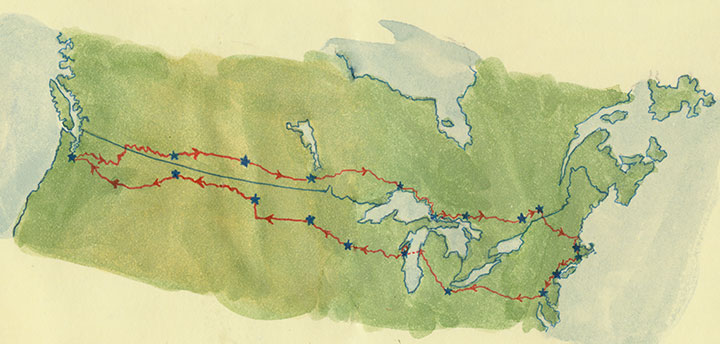
My usually insatiable wanderlust has been at an absolute fever pitch lately—and a pretty intense recent case of studio burnout has only increased the feeling. So in order to recharge the old battery a bit, and maybe stir up some brand new inspiration, I’m closing up shop and hitting the road. The Tailor and I are embarking on an epic five-week cross-country adventure, starting tomorrow morning. Along the way, if all goes according to plan, we’ll visit eighteen states and six Canadian provinces—and probably a host of art supply and camera stores along the way, to keep me stocked with sketchbooks and memory cards.
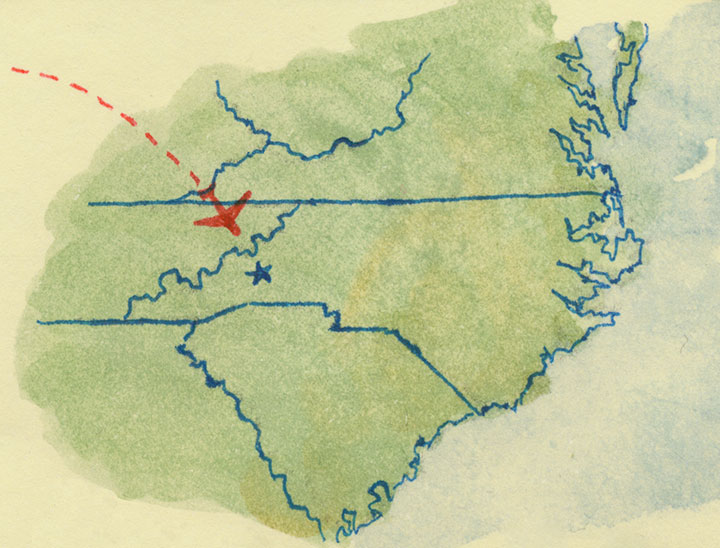
We’ll be back in the third week of July, which will give Jessica and me just enough time to design and print a new Dead Feminist broadside, and then hop a plane with the stack of prints. Jessica and I will be among the presenters at the first annual Ladies of Letterpress Conference in Asheville, North Carolina. If you happen to be local (and since a curiously huge percentage of our customers and followers live in NC, you might be!), swing on by and say hello! The conference will be held on August 5-7—as far as we know, we’ll be up to bat on the first evening.
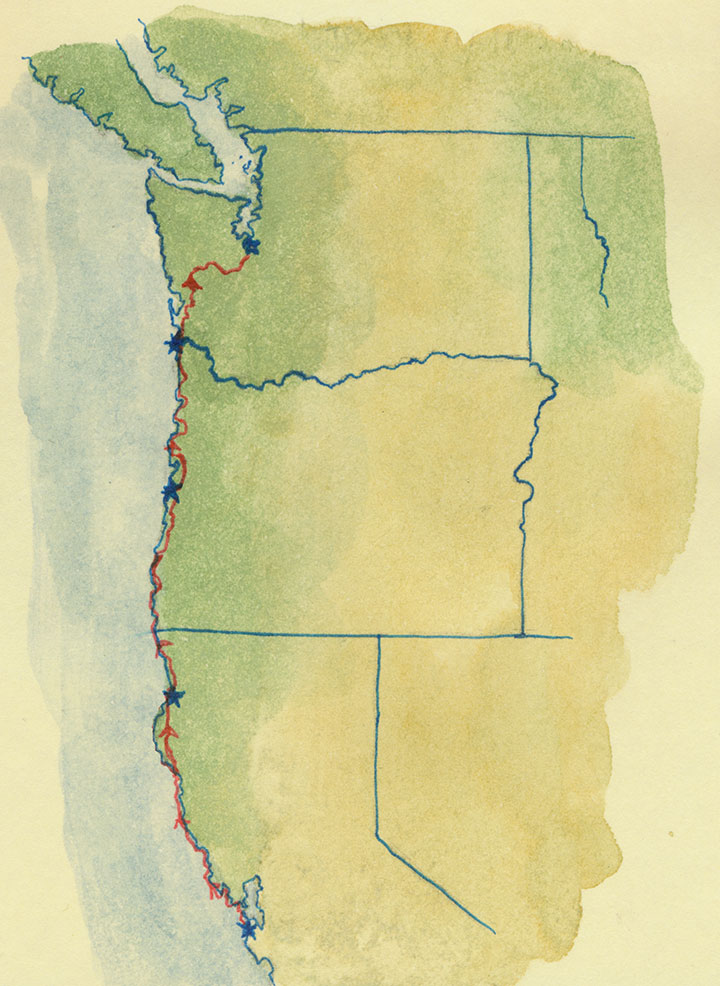
So as you can see, I’m going to have some blogging to do in the near future. Which reminds me that I never had the chance to report back about my last road trip, down the Pacific Coast. Either time flies, or I’m spinning too many plates. Since I won’t be set up to live-blog from the road this summer, I’ve queued up a series of posts about the Pacific Coast Highway to run while I’m away. It’s almost like being in two places at once!
So anyway, you take the high road, and I’ll take the low road, and we’ll meet up again, at the other end.
May 7th, 2011
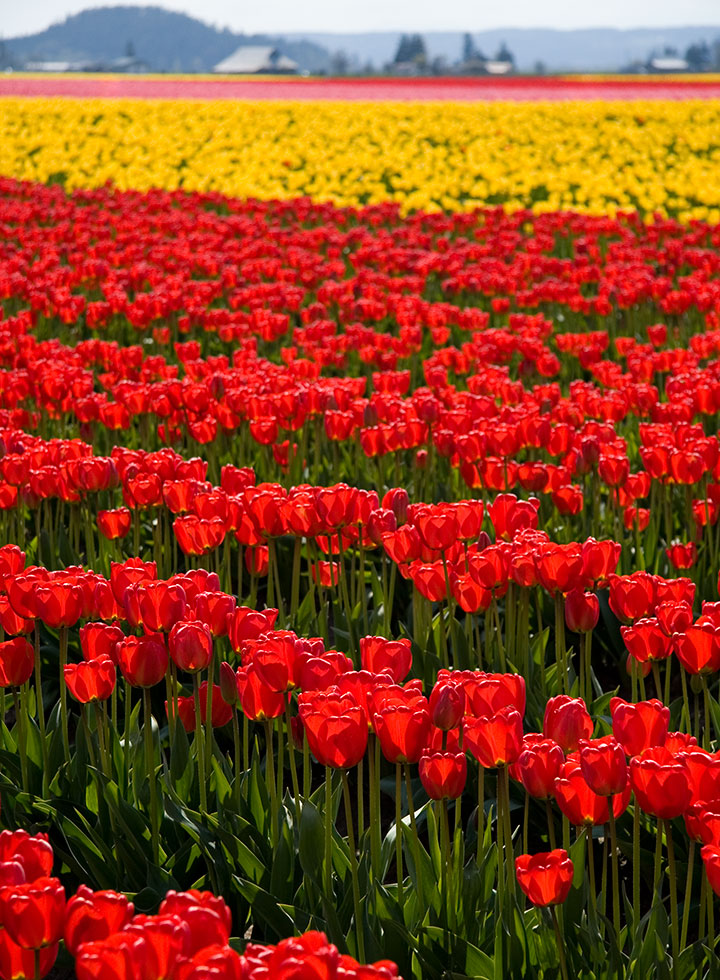
Despite an overabundance of deadlines and studio hubbub lately—well, beautiful spring weather and productivity just don’t mix. Besides, a sunny Friday in the Northwest is basically a license to play hooky. So I took a day off and made my annual pilgrimage up to the Skagit Valley to catch the end of the Tulip Festival.
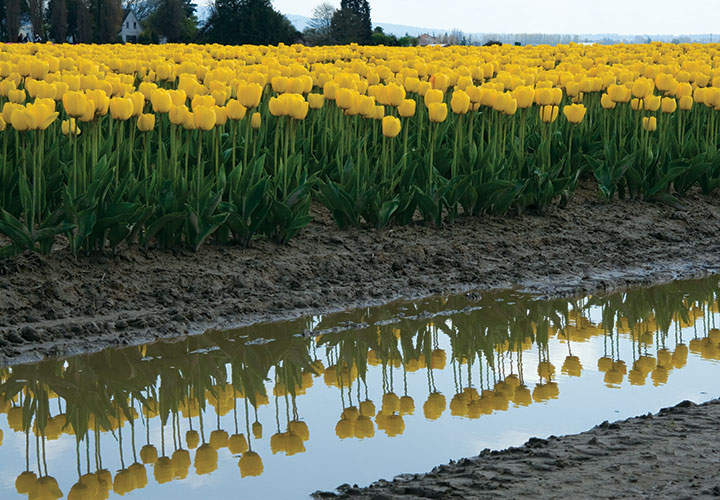
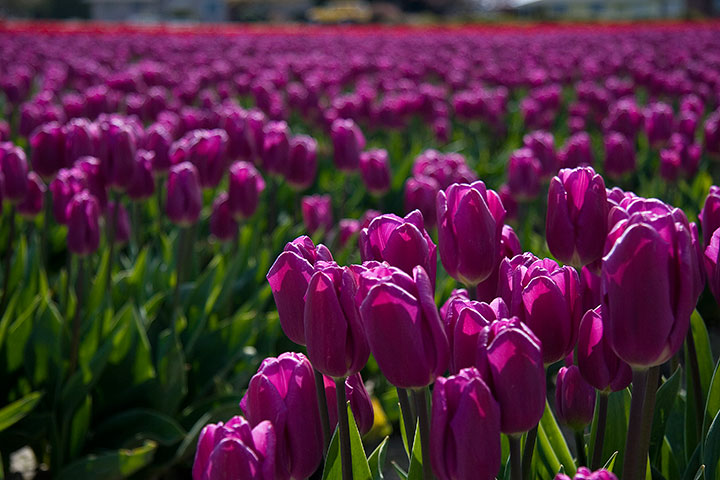
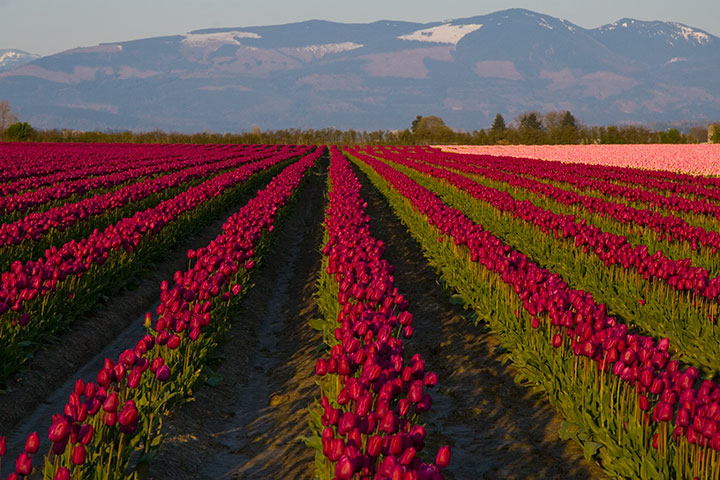
I’m glad I waited this year; not only did the blooms hit a late peak, but the weather was nearly flawless.
Unfortunately, that also meant I wasn’t alone. Finding a shot that didn’t include minivans, port-a-potties, cyclists in DayGlo jackets or entire families striking goofy poses was quite a challenge, and required a lot of waiting and creative cropping.
This time, however, I was interested in far more than just the tulips alone. So I cast a wider net, and found the magic absolutely everywhere I looked. Whenever I wandered away from the fields of pink and red, I seemed to have whole acres to myself.
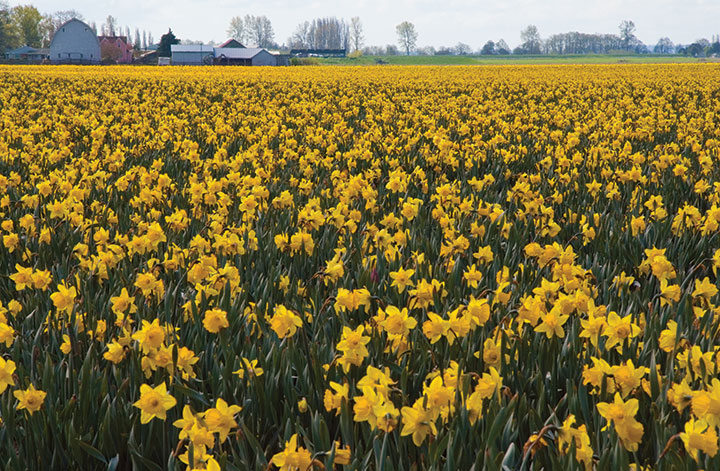
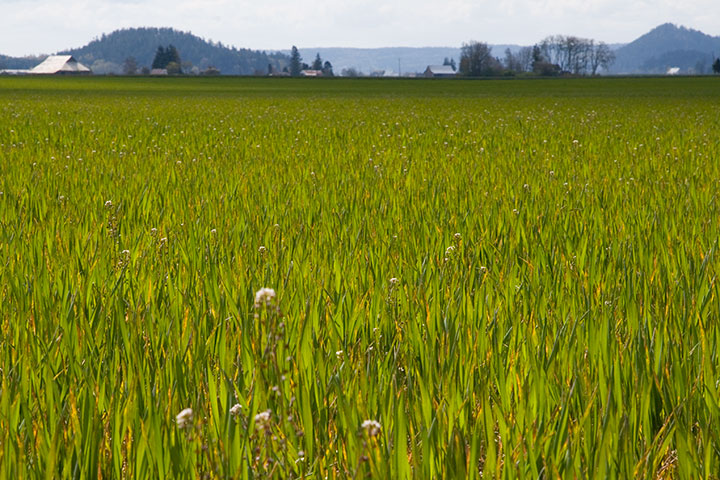
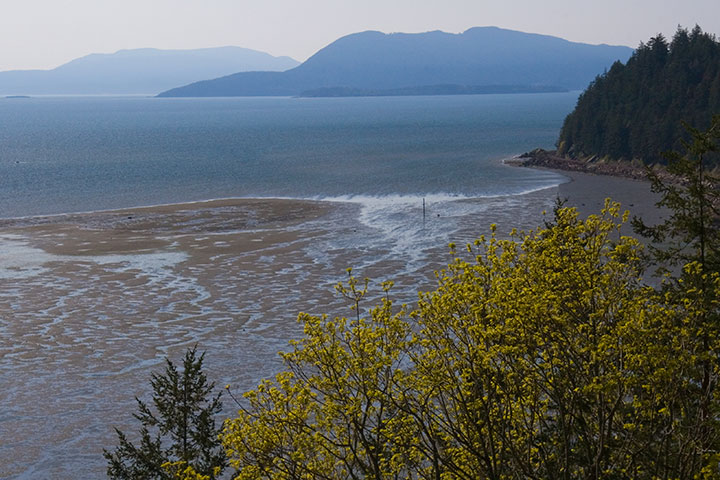
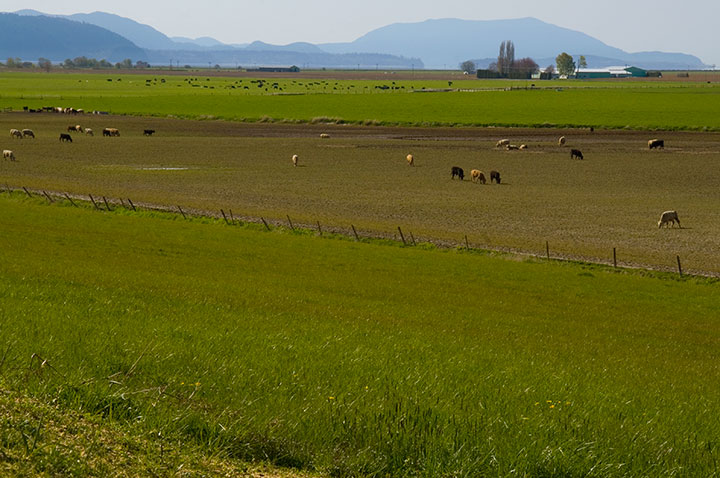
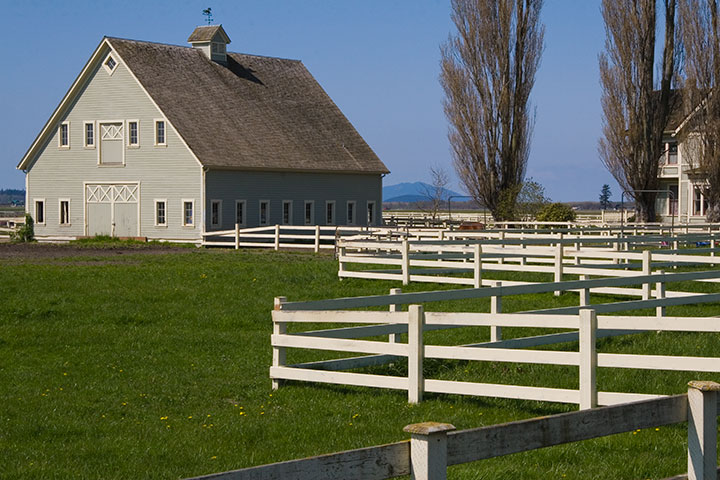
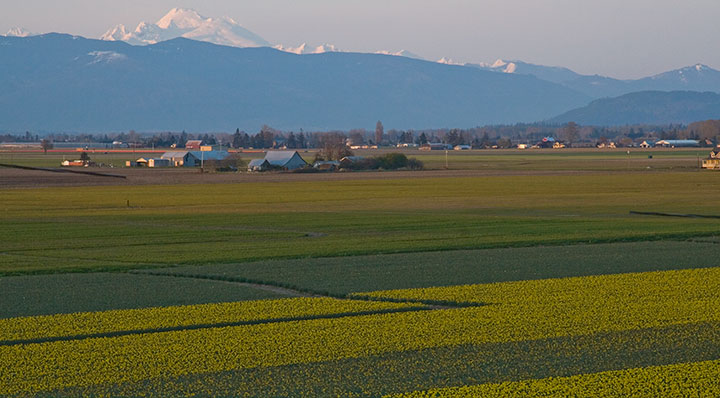
Still, come sunset, the tourists had all gone home, and it was just me, the mountains, and a sea of blooms stretching to the horizon.
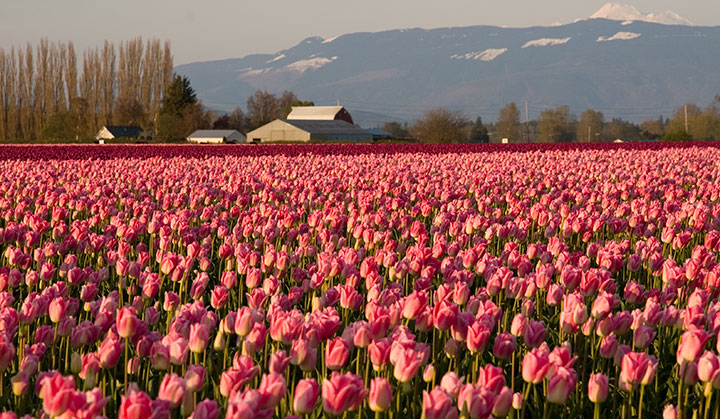
March 5th, 2011
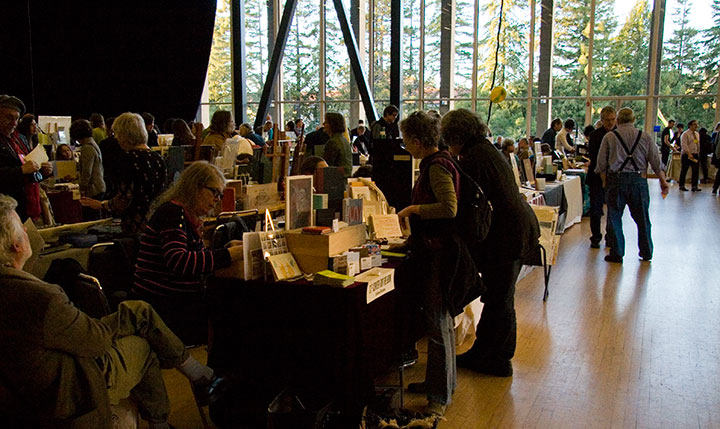
You know, I spent the whole time I was at Codex just trying to process everything around me. I thought the few weeks since that I’ve been telling stories and rehashing memories would make it easier to sort it out in my mind, but I still just can’t seem to articulate the impressions bouncing around the inside of my skull.
It was just too big … too rich … too much.
Which probably explains why I never managed to get any decent photos. I was too busy standing there goggling at the enormity of it all to document the experience properly. It was all I could do just to man my own table and keep track of all the folks who stopped by to talk to me.
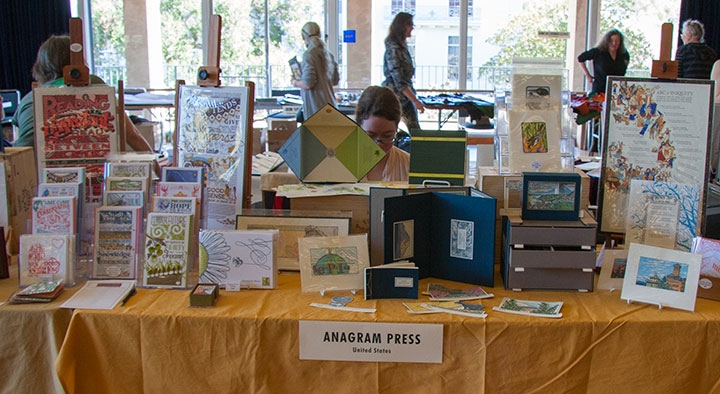
Let me backtrack a bit, and explain what all of this was about. For every discipline, subculture or interest group out there, there’s some sort of club, or society, or conference, or symposium, or bee, or knitting night, or comicon, or hot-dog-eating contest, or what-have-you—some organized gathering for like-minded people to get together and share what they do. If you can think of it, there’s probably a group of people meeting about it somewhere.
The trouble with the book arts is that our world is small and spread out. There aren’t too many of us who do this sort of thing in the first place, at least when compared to photographers, or children’s book writers, or web developers. And then within our little group, everybody follows such a different path that getting us together is like herding cats. We’re hard to pin down because there’s a whole universe in our little speck of dust. Printing, bookbinding, papermaking and typesetting are just the tip of the iceberg. Within each of those disciplines is an incredibly broad spectrum of different and often contradictory artists and art forms. And yet each of those fits comfortably, easily, infinitely under the same, paradoxically small umbrella of the book arts. (Now you know why I’m not great at elevator speeches.) If you tried to graph it out, you’d end up with either the world’s best or worst Venn Diagram—I can’t decide.
So because we run such a crazy gamut, we can’t be shoehorned in neatly with some other event, even though the “average” book artist can and probably does moonlight quite easily as a dozen other things. There’s no “book arts corner” at SXSW, or BlogHer, or the Venice Biennale. Exhibitions and summits dedicated entirely to the book arts are few and far between—large international events are rare, indeed. So for our lot, Codex is a big deal.
This year there were over 140 exhibitors at the book fair, representing artists in every conceivable discipline and style, and every corner of the globe. The exhibitors hailed from 20 states and over a dozen countries outside the U.S., including Russia, Germany, France, Israel, Colombia, Japan, Mexico and Canada.
And it isn’t just for artists: students, educators, private collectors, librarians, museum curators, conservators and archivists, hobbyists, publishers, supply vendors, gallery reps and dealers, bookstore owners, clubs and organizations, and every stripe of enthusiast were in attendance.
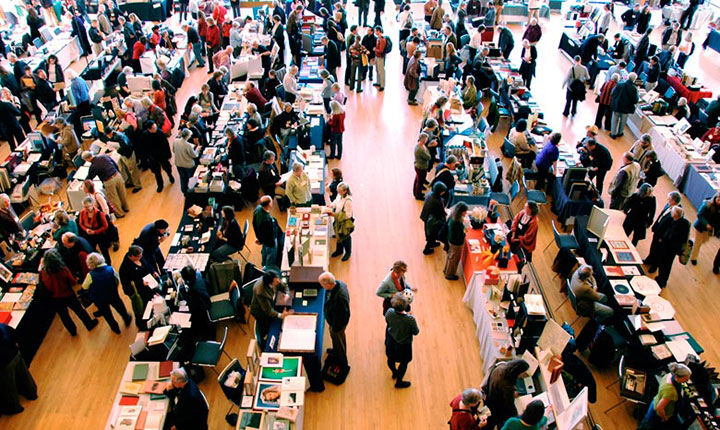
Photo courtesy of the Codex Foundation.
So yeah. Codex is huge.
It was both intimidating and inspiring. I was immediately and constantly confronted with my own insignificance (I kept imagining that at any moment, some cartoon alarm would go off—woop! woop! woop!—alerting everyone to the fact that I didn’t belong there)—yet at the same time, everyone I met was warm and welcoming.
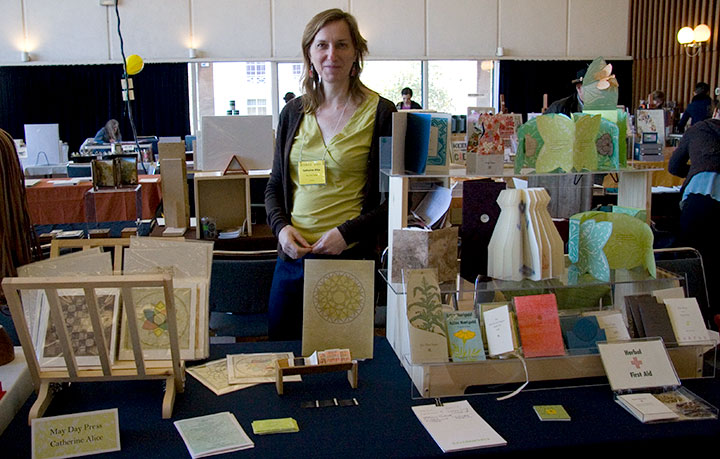
I had the chance to catch up with old friends, meet many of my long-admired art-heroes, and be introduced to a whole host of new faces.
But most of all, Codex was completely, utterly overwhelming. I had my brain cranked up into overdrive for four solid days. After meeting literally hundreds of people, answering thousands of questions, asking another thousand myself, handling many dozens of handmade books and artworks, absorbing new information and taking copious notes, and just being exposed to the ultimate sensory overload of it all—well, by the end, I was a deer in the headlights.
And I feel like I barely scratched the surface of what was there. Imagine that you’re visiting the Louvre, or the Smithsonian, or some other enormous museum. Only instead of picking and choosing which galleries and pieces to see, and making your way through room by room, you discover that every painting, every sculpture, every piece of art in the whole place is crammed into one huge hall—each with the artist who made it standing to the side, waiting to meet you and hear what you think. I’d go mad—I think I did go mad!
Everything I saw was phenomenal—it was hard not to just stand there, slack-jawed, struck dumb by the realization that there I was, in close proximity to some of the best work being done by anyone, anywhere.
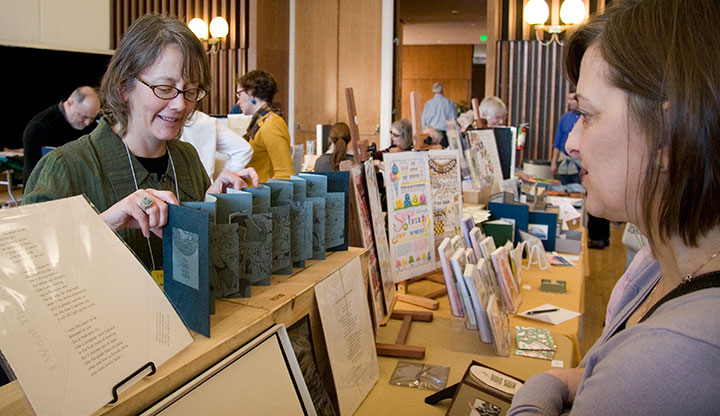
I could go on and on. And I’m sure there were a thousand other great things I never had a chance to see, because I also had a table to man. Jessica and I made the trip together (that’s her showing one of her books), and as we had adjacent tables—
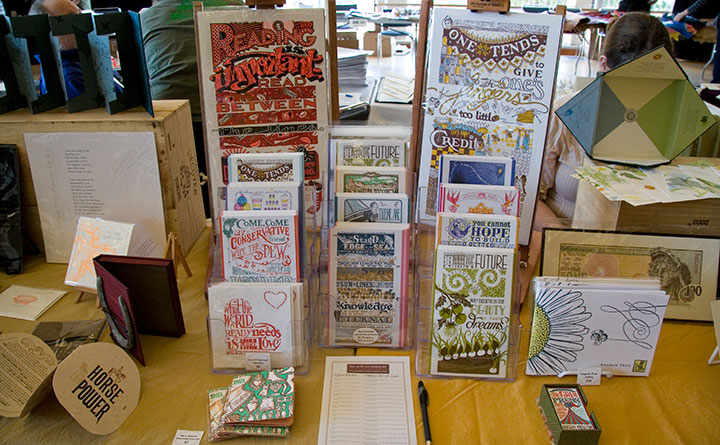
—we met in the middle with our Dead Feminists stuff between us.
Jessica’s done Codex once before, so she was prepared for the overwhelming onslaught of people. She suggested that we put together a letterpress-printed take-away catalog of our work so that after the fair, when everyone was just as dazed as I was, they’d have something to remember us by. (And that ended up being a great idea, and a big hit—we had tons of follow-up messages afterward, and we didn’t see anything like the catalog at the book fair.)
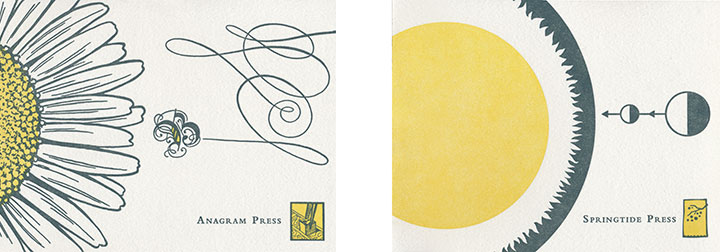
Since we collaborate on so many things, we decided to combine our efforts into one joint catalog—with a twist.
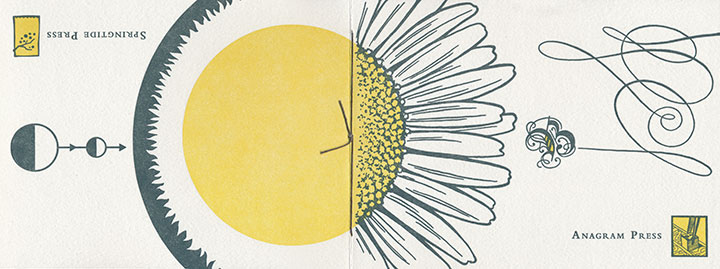
We figured we had an opportunity to clear up a little of the confusion over who does what around here, so we had fun playing with the design possibilities. Jessica came up with a flip-flop format, and I designed two covers that would come together at the spine to form a single image if laid flat.
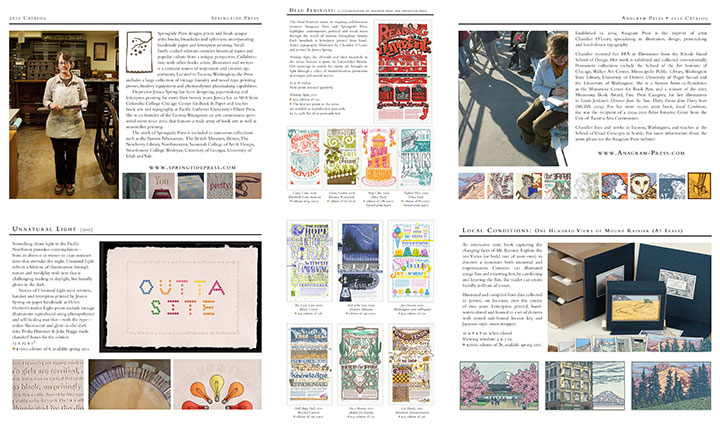
Held one way, you’d read her half of the catalog; flip it over and read from the back, and it becomes my half. We converged in the middle with a Dead Feminist “centerfold” (ha!).
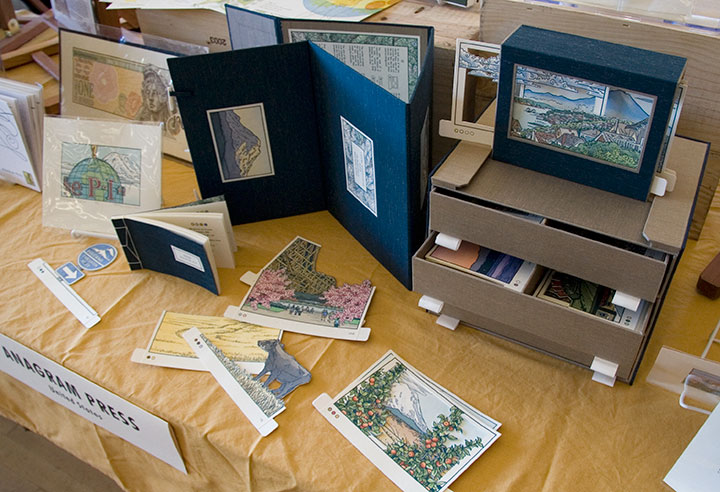
For my part, the most gratifying part of Codex was watching a steady crowd playing with Local Conditions. The response people had to the book was both intensely gratifying and humbling—and it was wonderful to see that students, fellow artists, dealers, curators, professors and collectors were equally excited about it. But my favorite bit was being a bystander to all the different scenes people designed with the image flats.
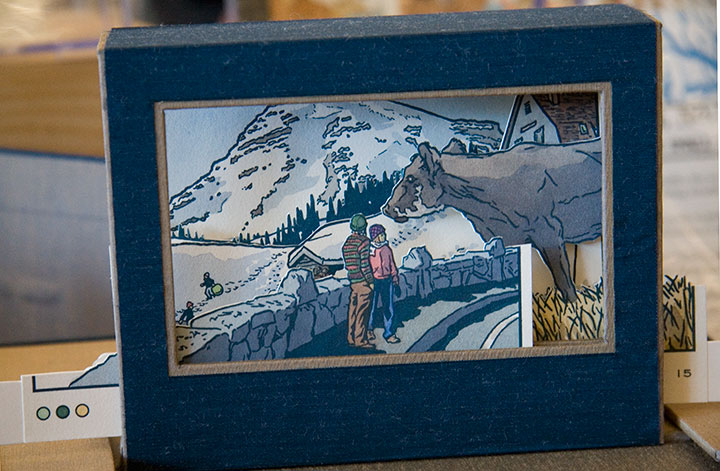
The cow completely stole the show there. It was hilarious to see how many times it turned up in a scene, either a fitting addition I hadn’t thought of—or as an absurdly out-of-place monster.
(Best of all was the cow that stood on the airplane wing and pretended to be a gremlin.)
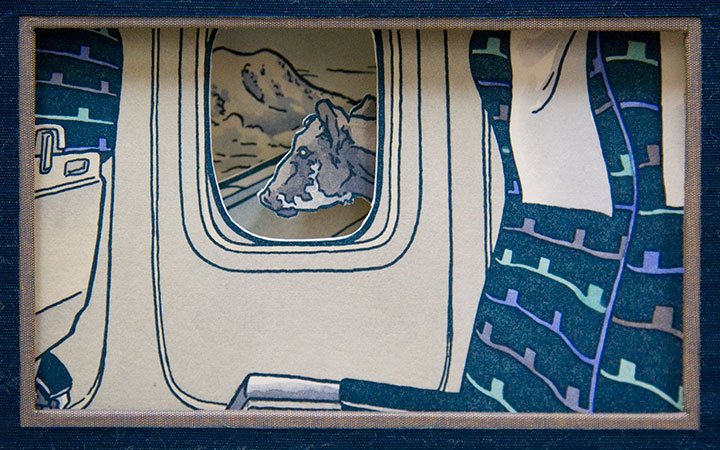
It’s hard to remember that we were in a city as fabulous as Berkeley—the folks at Codex had created a complete world just in that one room. (Though we did get out enough to discover that when the overstimulation had us in a daze, a hot-cookie ice cream sandwich down the street was just the ticket. Thank you, Berkeley!) The next fair is two years away, but I came home with what seemed like a decade’s worth of inspiration. And I find I’m already looking forward to Codex 2013—sensory overload and all.
Bring it on. I’ll be there.
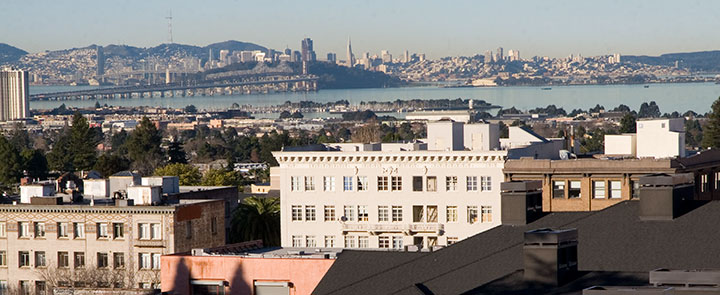
February 17th, 2011
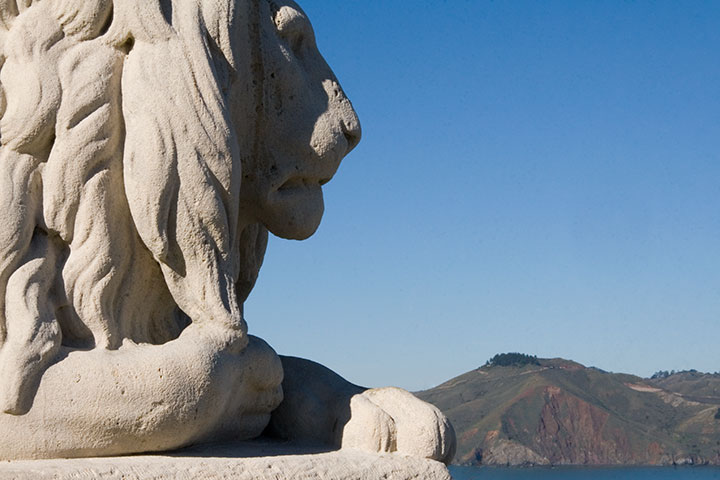
After thirteen days and 2,382 miles on the road, I’m finally home in the real world again. And that’s exactly how it feels—like I’ve been in a land of make-believe for the past two weeks. A place of impossible landscapes and endless shorelines and absolutely no connection to things like phones and computers and deadlines and to-do lists.
Now that I’ve washed back ashore, however, there are photos to edit and sketches to scan before I can tell you about it. In the meantime, Jessica and I have a schedule to keep: as advertised, our next Dead Feminist broadside is back from Codex and ready to share. Look for it here and in the shop tomorrow.
See you then!
February 11th, 2011

Going A.W.O.L. from the studio can be a very good thing—especially when this is the destination.

I’m here to spend some time with these folks,
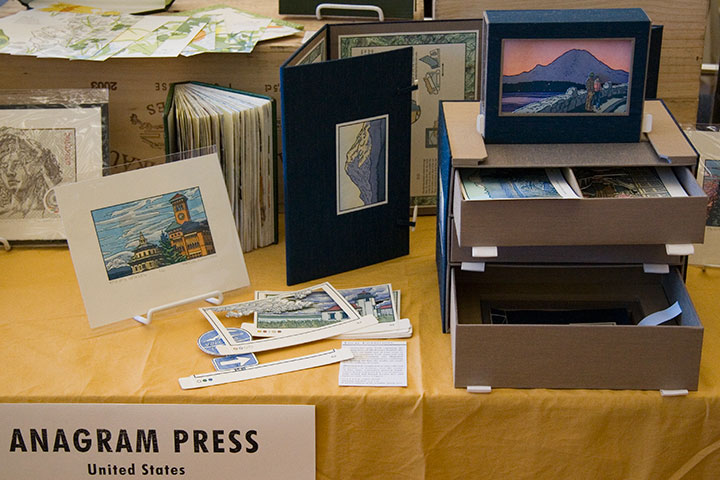
for the sake of this.
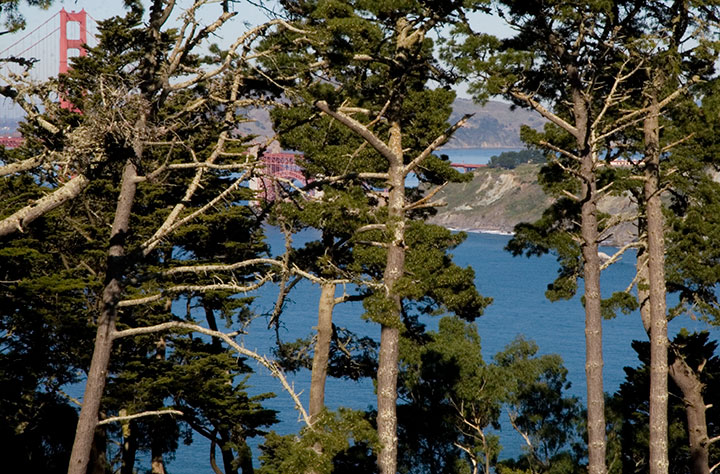
But the “work” part of my trip is done now, so I spent today up here.
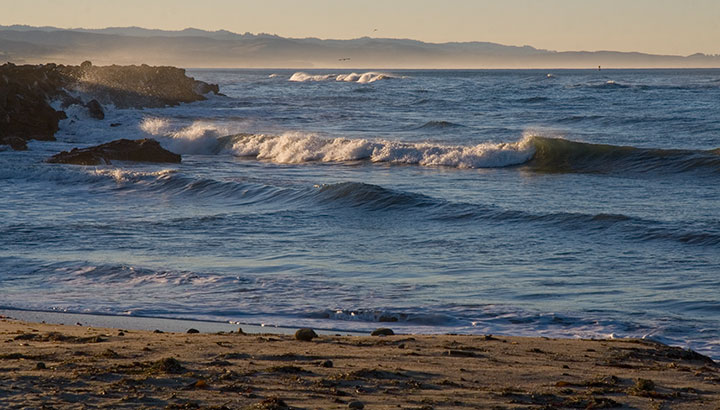
And tomorrow I’m leaving for home, but I’ll be taking the long road, by way of this.
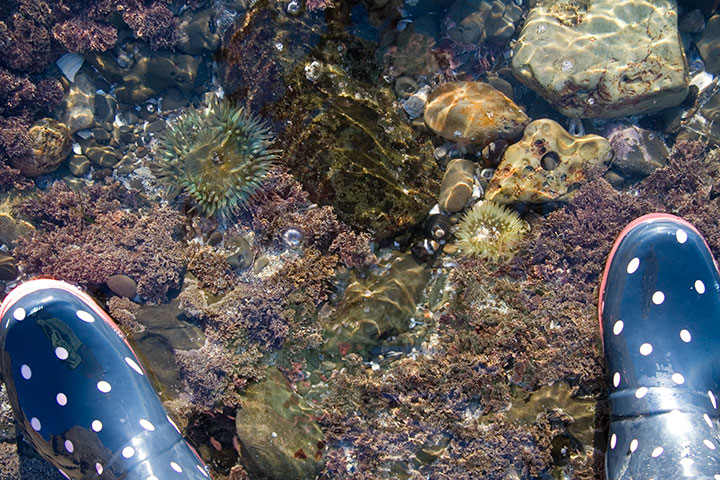
The goal is to take as much time as possible for things like these,
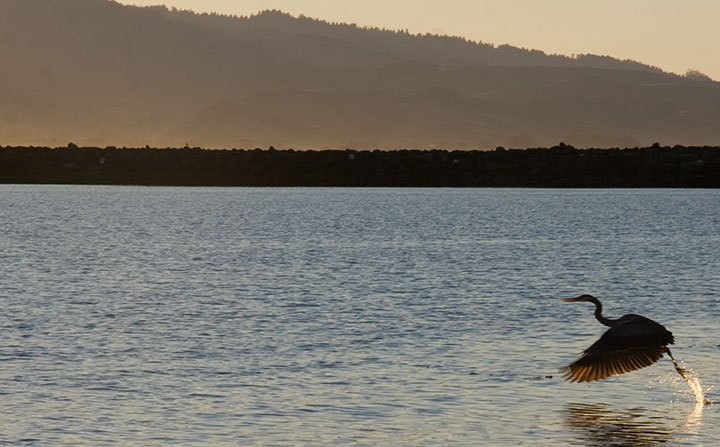
and for moments like this.
I promise to share when I get home and have access to a computer again. See you on the other end of the trail.
December 13th, 2010
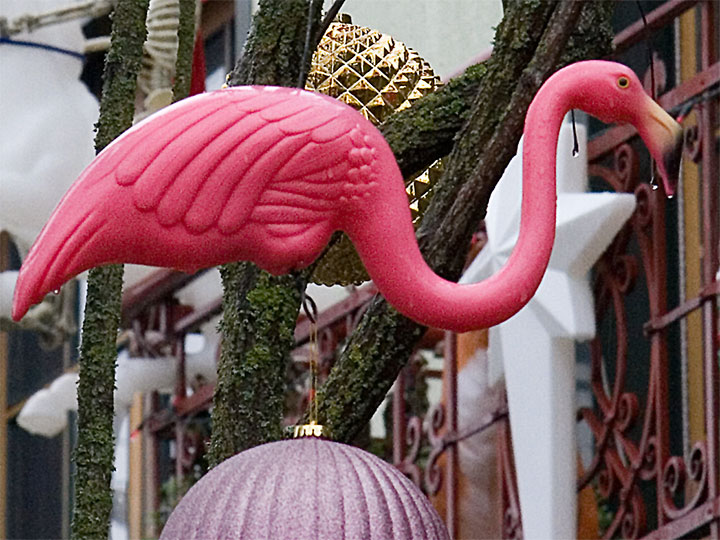
One of the nerdy things I love most in the world is “collecting” regional nicknames for weather systems. I’ve lived in a lot of different places, and have first-hand experience with such things as the Nor’easter, the Albuquerque Low, the Alberta Clipper, and Blood Rain (which, I’ll admit, is as freaky as the name; watching rust-colored droplets fall from the sky and stain every surface—including you—is a disturbing experience).
Here we get the occasional visit from the Pineapple Express—a holiday guest from the South Pacific that overstays its welcome and eats everything in your fridge. And it thanks you with the gift of a warm bath—a gift that keeps on giving: namely, torrential rains, washed-out roads and rails, snowmelt at all but the very highest elevations, and areas of flooding which include, right at this very moment, our basement. (Not to worry; for us, at least, the rain trickles in, gathers in an interesting map of puddles, and trickles back out again when the storm subsides. And for all the well-meaning people who offer us unsolicited remodeling advice, it serves as an excellent illustration of our resolve never to have a finished basement.)
Anyway, while I concede that it made the drive more … er, interesting, the Pineapple Express served as an oddly fitting companion on my trip to Portland yesterday.
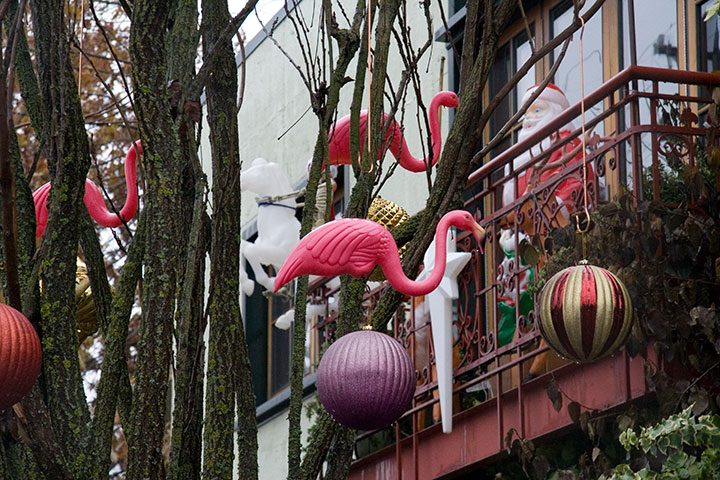
For one thing, it gave sudden and perfect context to one hilarious interpretation of a Christmas tree.
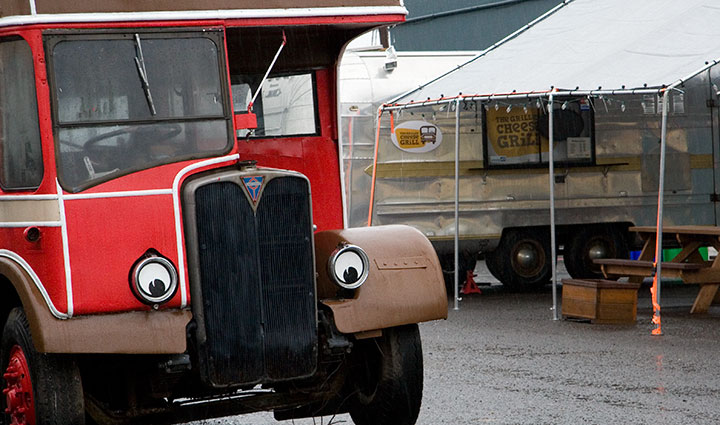
It made the bright spots glow—
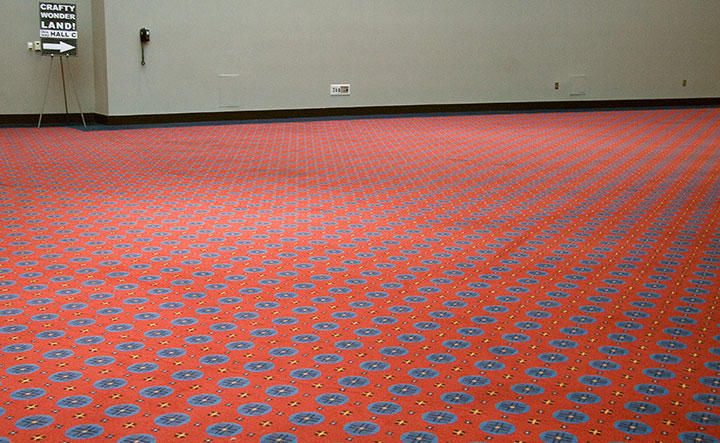
and turned even the most nauseating corporate decor into a sea of color.
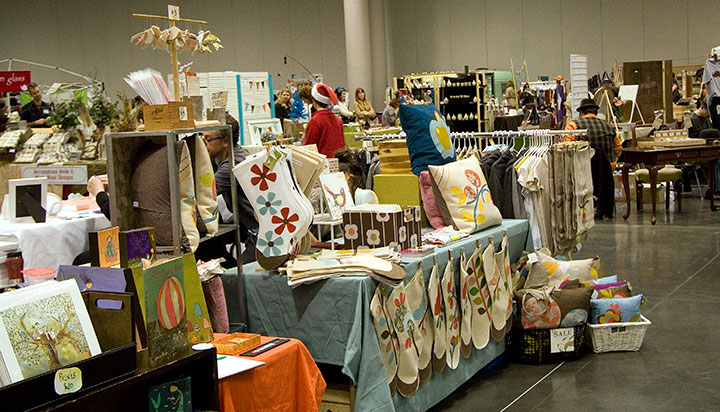
It got the old mental wheels turning by inviting me indoors, from a dose of crafty goodness,

to an entire museum devoted to another kind of craftiness.
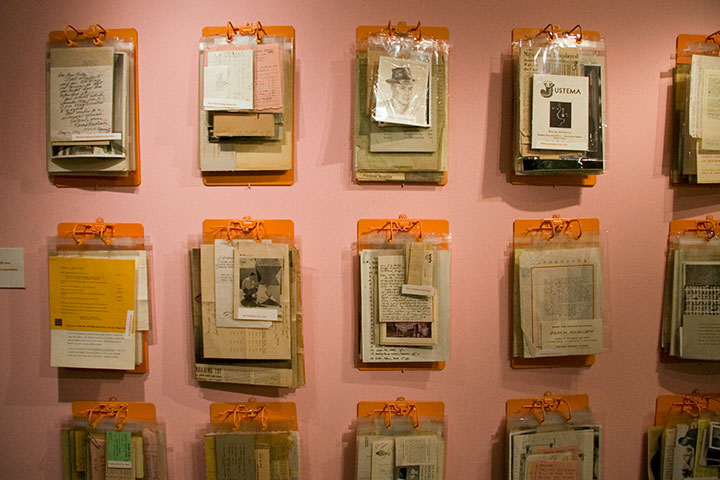
And with nothing but a soggy hike waiting outside, it inspired me to take my time and have a good, long look at what I found.
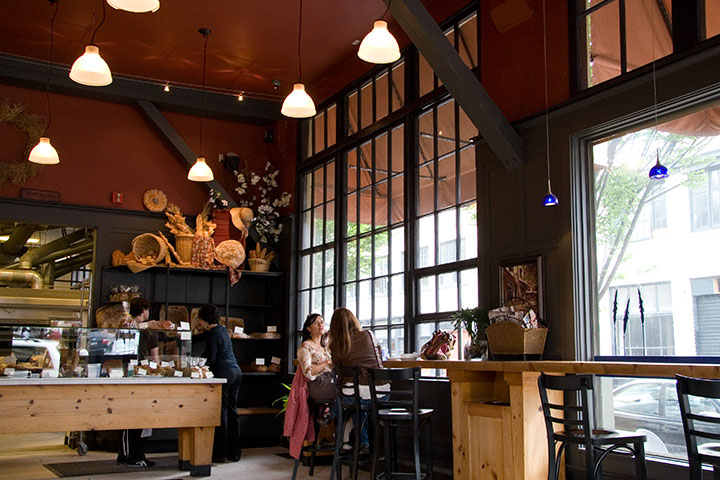
It encouraged me to visit a favorite bakery—
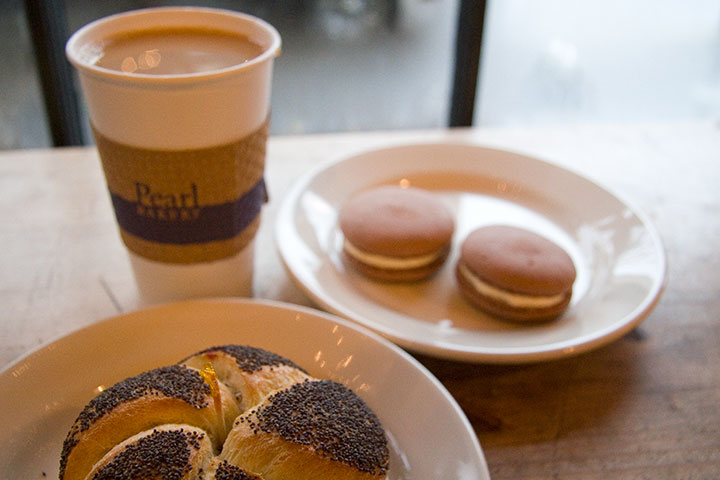
—and warm up over a well-rounded lunch (sorry).
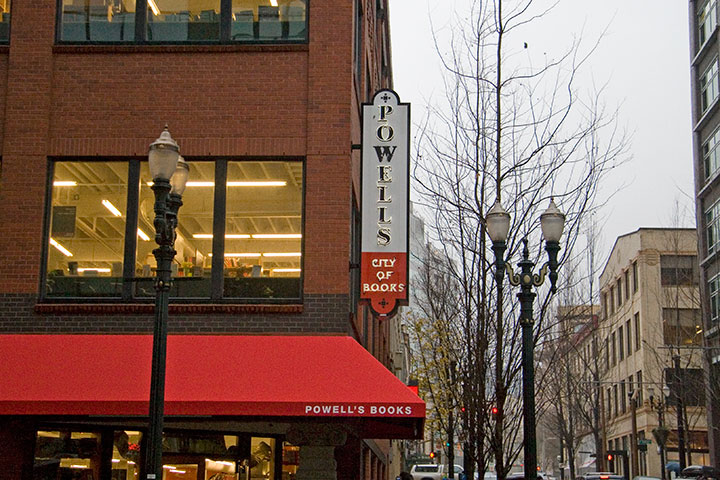
It gave me an excuse to duck into the best bookstore in the entire universe.
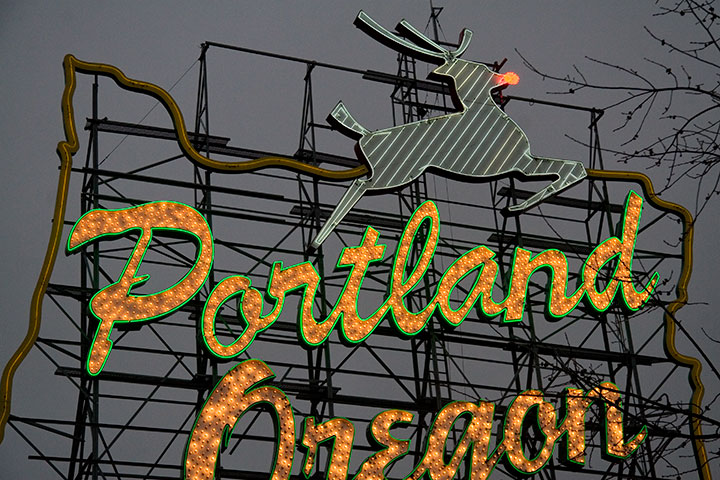
And just as daylight waned, it helped a certain somebody’s nose glow oh-so-bright.
Oh, and then, as I walked back to my car for the drive home, it made this song pop into my head. After all, paddling home in a canoe might have been a little more efficient!
December 1st, 2010
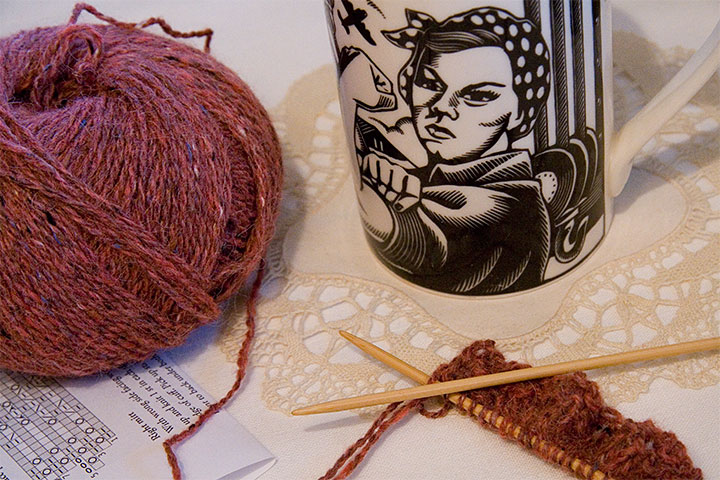
You know what? It’s pretty dark here in the winter.
No, I mean really dark. Not just a sunrise-at-eight-pitch-black-by-five dark, but a kind of silver pall that sets up a permanent residence, even at midday, and makes you forget about the sun. It’s absolutely beautiful when you’re taking a walk in the fog, or curling up with your trusty Rosie mug and a hank of yarn. Not so great when you really need a lot of natural light, though—like, say, for shooting photographs…
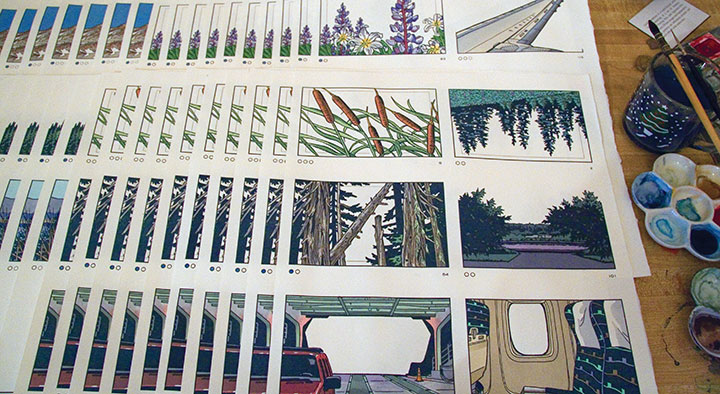
…or mixing paint to fill in a huge stack of glorified coloring book pages.
So between the short daylight hours and a desperate need to reserve a little personal time, work on the book has slowed from a breakneck pace to a stately, clip-clopping trot. I still have so much to show you—so much to explain—but my head needs to catch up with my hands first (or is it the other way around?). I’m going, then, to break it up into a series of posts, and take a little extra time to gather my thoughts before I start. I don’t mean to string you along; because the process required working with a kind of tunnel vision for so long, I’m only just now seeing the “finished” product myself. So thanks for your patience—and for being interested enough to stick with me.
Thank you also for the huge outpouring of support you’ve shown since I posted this thing a couple of weeks ago. The comments, links, blog features, Tweets, emails, and amazing reviews are just overwhelming. I simply can’t find the words, except—thank you.
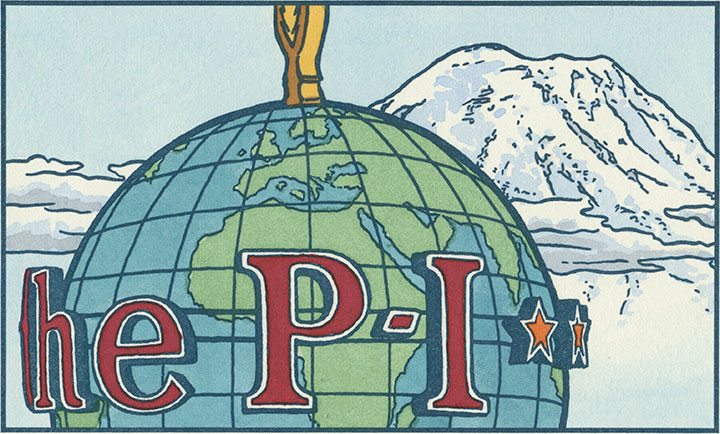
Part of what’s taking me so long is that at the same time, I’m working on a small series (like a baker’s dozen or so) of individual prints of images from the book (exhibit A above). There’s not a whole heap of rhyme or reason as to which illustrations I’ve chosen, except that these are some of my favorites. I’ll be posting them in the shop (believe me, they’ll be a lot more affordable than the book) as I finish them.
In the meantime, it’s time to light a few more lights, and keep the dark at bay so I can see what I’m doing.
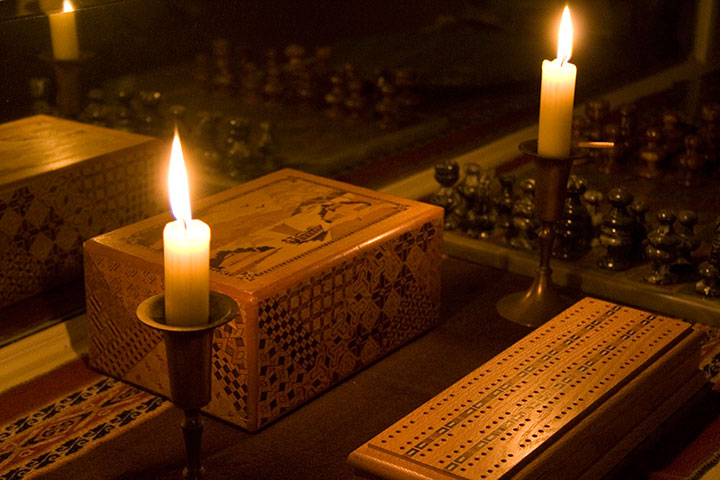
Which reminds me—Happy Hanukkah!
October 22nd, 2010
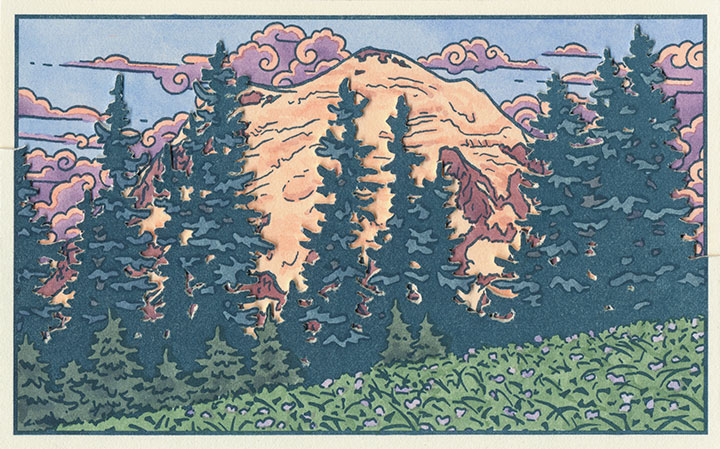
It’s getting harder and harder to keep the secret these days—the Rainier book is almost done, and I’m just dying to show you. But I don’t want to ruin the surprise for T-town, so I’m going to keep it under my hat for just a little longer. But after over two years of being under wraps, the book is gussying it up and stepping out for a solo exhibition. Here’s a brief description of what you’ll see:
Local Conditions, an interactive artist book, captures the changing faces of Mt. Rainier. Explore the 100 Views—or create one of your own—to discover a mountain both immortal and impermanent.
The book contains 120 image flats and a viewing box; by combining and layering the flats, the reader can create literally millions of scenes. Images are illustrated and compiled from data collected in person, on location, over the course of two years. Letterpress printed, watercolored, and hand-bound in an edition of 26 books. Sponsored by the Tacoma Arts Commission.
Exhibit runs November 4 through January 21
Collins Memorial Library, University of Puget Sound, Tacoma, WA
Opening reception: Thursday, November 4, 4:30 to 6:30 p.m.
Artist talk (sponsored by the Book Arts Guild): Thursday, November 11, 7 p.m., Room 020
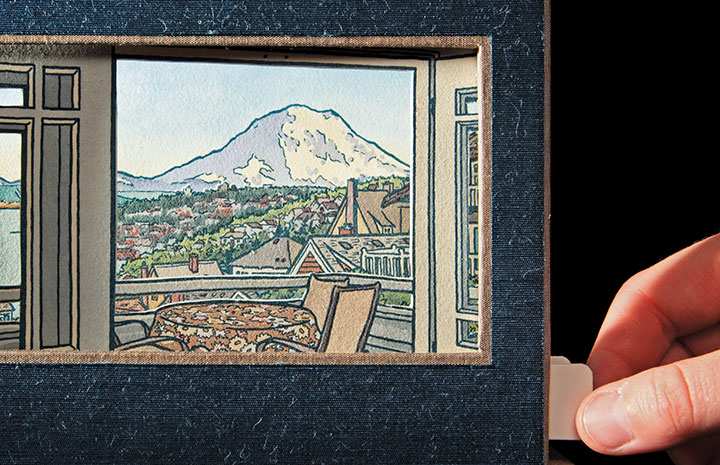
Photo by Sarah Christianson
If you miss the exhibition opening, I’ll have some of the process materials from the book out for perusal at this year’s Studio Tour—as well as the brand new Dead Feminist broadside! (Look for it online in early November.) So be sure to stop by!
Saturday and Sunday, November 6 and 7
Open 10 am to 4 pm.
More information, maps, addresses and directions can be found here.
See you then!
September 8th, 2010
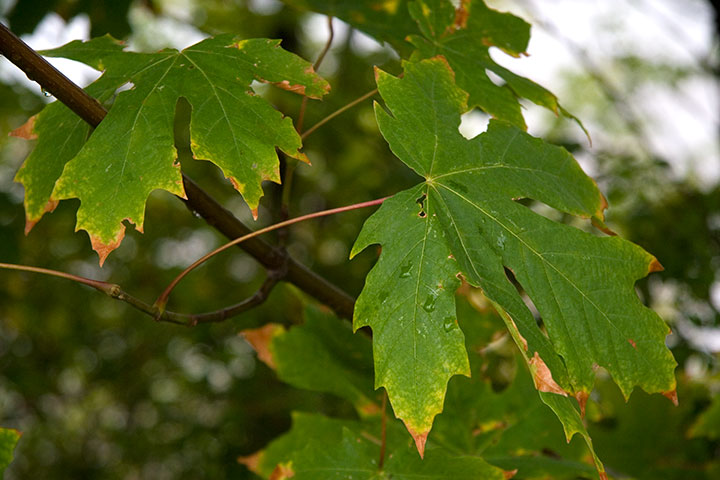
Judging by the chilly rain that’s suddenly arrived, the rapidly diminishing daylight and the maples that are already starting to turn, summer is officially over. But maybe it’s all those years I spent going to the Minnesota State Fair, because the end of summer has always got me dreaming of still-hot days and fried food on a stick—and I find myself handing out metaphorical blue and red ribbons to the winners of nonexistent competitions.

Take, for example, yesterday morning, when I had to return some library books to the Kitsap Regional Library. Since I could visit any library in the system to do it, I picked a branch in a town I had never yet visited: Poulsbo (pronounced “Paul’s Boh”).
To kill a few minutes before the library opened, I parked the car next to a waterfront park, and took a stroll along the boardwalk that extended toward the center of town. I have no idea what I was expecting to find at the end of the boardwalk—
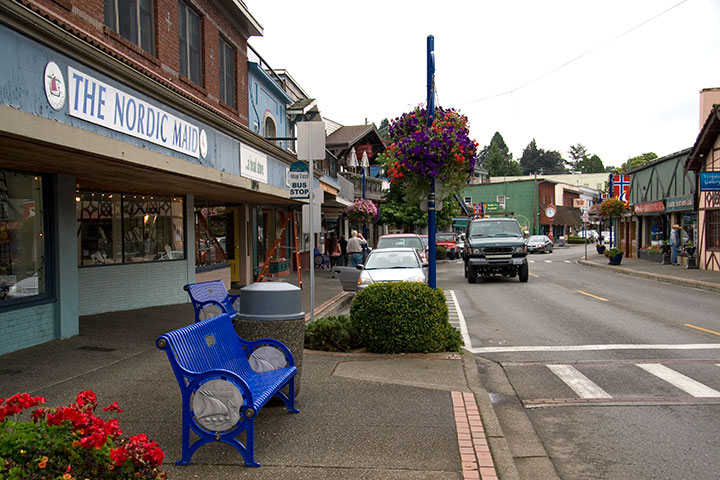
but it certainly wasn’t anything quite this adorable.
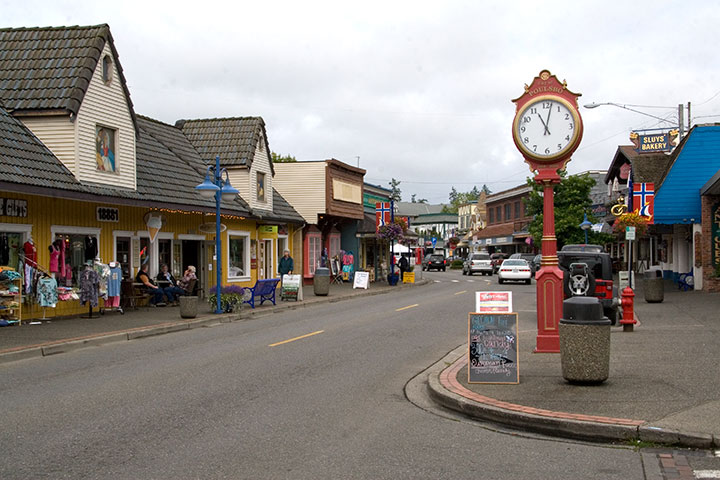
Tucked away on a fjordy arm of the Sound, Poulsbo was settled in the 1880s by Scandinavian immigrants (the ones who didn’t stay in Minnesota to start up the State Fair, that is).
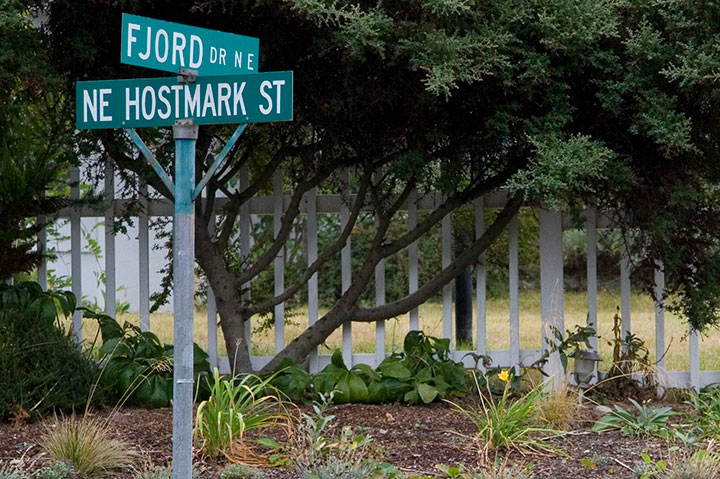
And it’s been a little piece of Norway ever since. In fact, Norwegian was the primary language here until World War II; and even yesterday, I swear on my own grave that I overheard a conversation in Norwegian. Hey, I didn’t live in both Minnesota and North Dakota for nothing—my friend Bridget would be proud of me for picking out all the “jeg“s and “er“s and “av“s she taught me long ago.
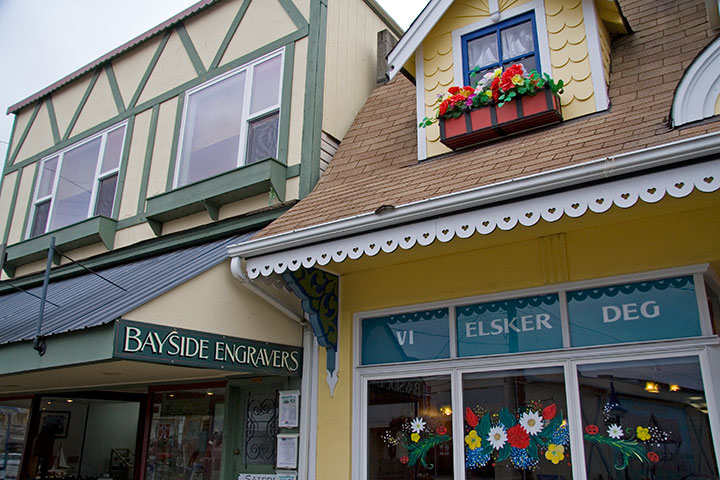
So Poulsbo gets a blue ribbon for charm and gratuitous outdoor use of Norsk.
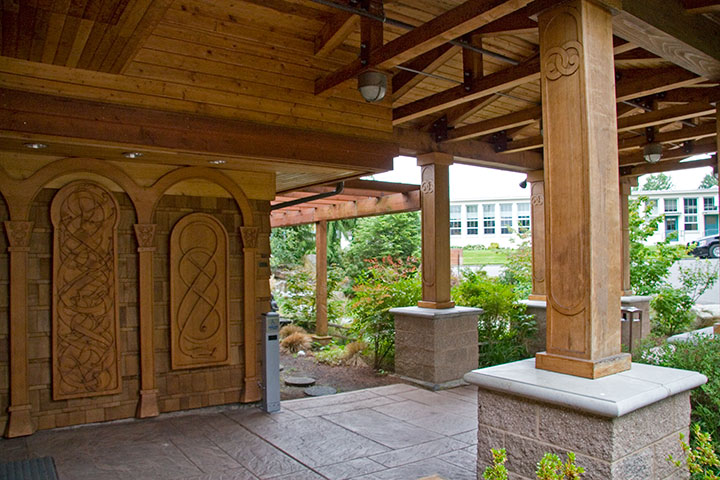
Eventually I remembered what I was there for in the first place—and then, when I laid eyes on the carved pillars and intricate paneling, I had to make sure I had written down the correct address. I think it’s safe to say that Poulsbo has also netted the Most Beautiful Library ribbon—
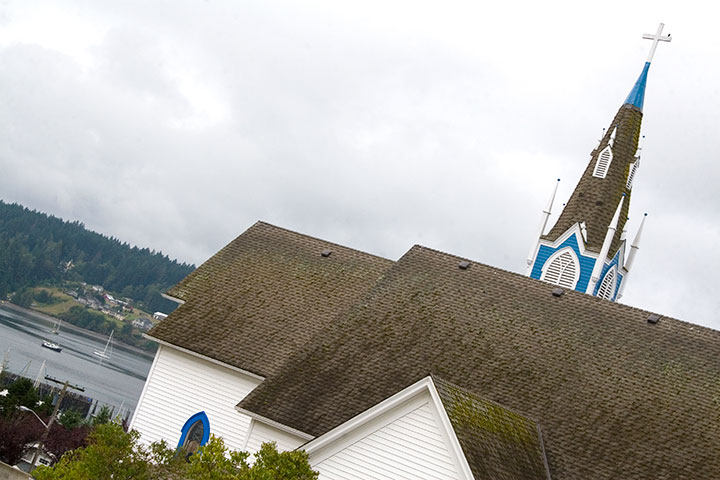
aaaand another blue for Cutest-as-a-Button church steeple.
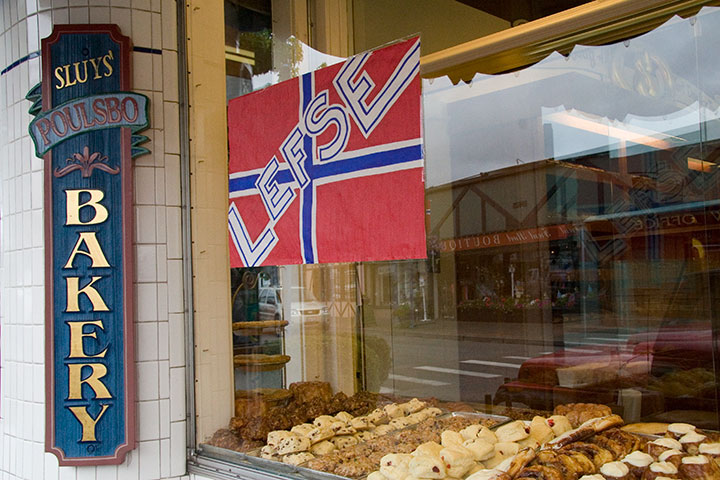
Before I headed for home, I walked the rest of Front Street—and stopped dead when I saw this sign. I don’t have a drop of Norwegian blood in my veins, but I do know my way around a Norse bakery.
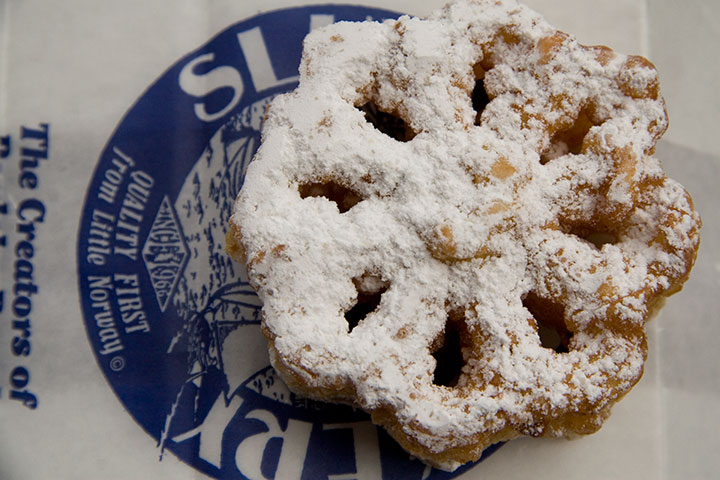
Lefse wasn’t on the menu that day, but I did find the perfect treat for my State Fair state of mind. Oh, yes. Another blue ribbon.
What can I say? Poulsbo knows the ways to my heart.
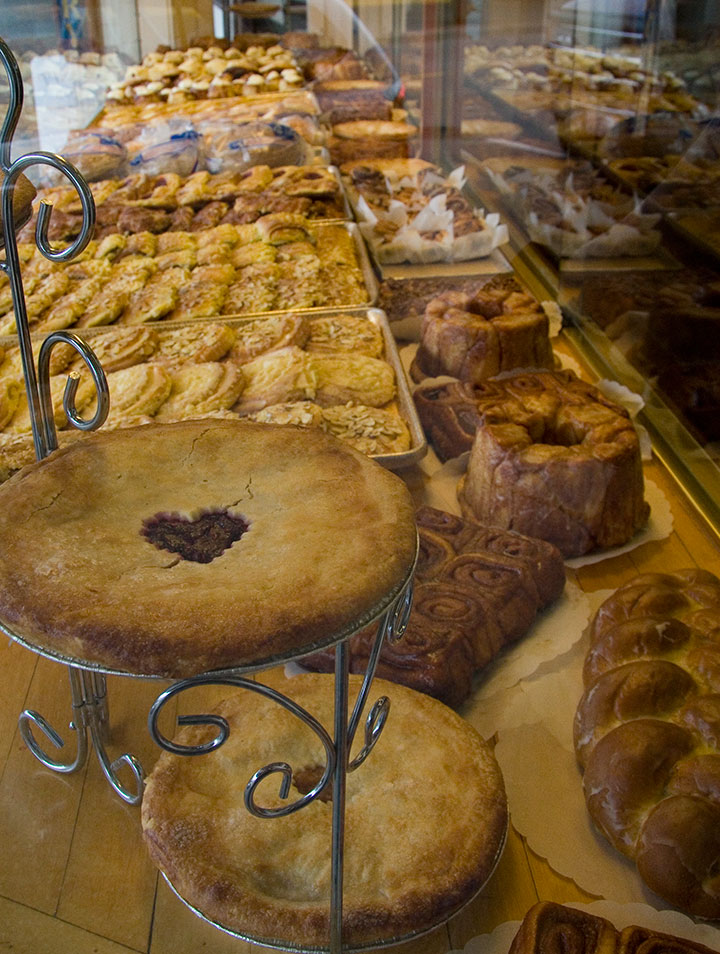
August 21st, 2010
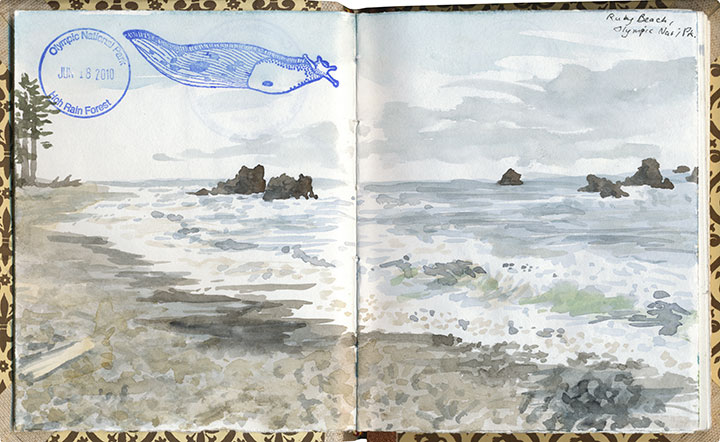
Since I posted this drawing and some others this summer, people have been asking me what’s with the stamps in my sketchbook. I guess the short answer is that each one is a little piece of personal tradition.
But you know I don’t really do short answers.
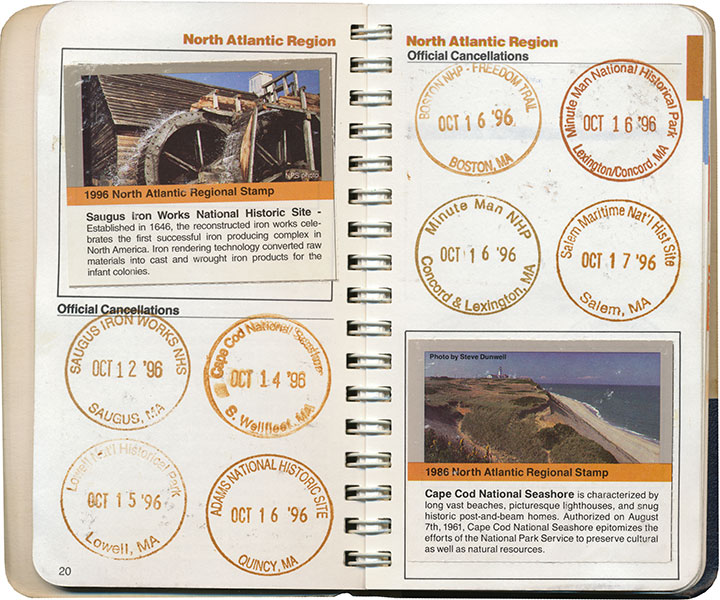
The long one, then.
I grew up in a nomadic family. Between the moves required by Dad’s job in the Air Force and a fierce wanderlust that runs in all the O’Leary veins, we had a lot of reasons to travel. Dad and I, especially, would spend hours poring over our dog-eared Rand McNally road atlas, plotting routes over the back-est of back roads (the squigglier the line on the map, the better) and stops at as many points of interests as we could cram into a journey from A to B.
When I was ten, we made a circuit of our then-home state of Colorado, and devoted our time to exploring every national park and monument we could reach along the loop. At each park’s visitor center, we noticed a rubber stamp and ink pad stationed at the front desk. When we finally asked a ranger what they were for, she handed us a small blue notebook and proceeded to explain about the National Park Service’s Passport program.
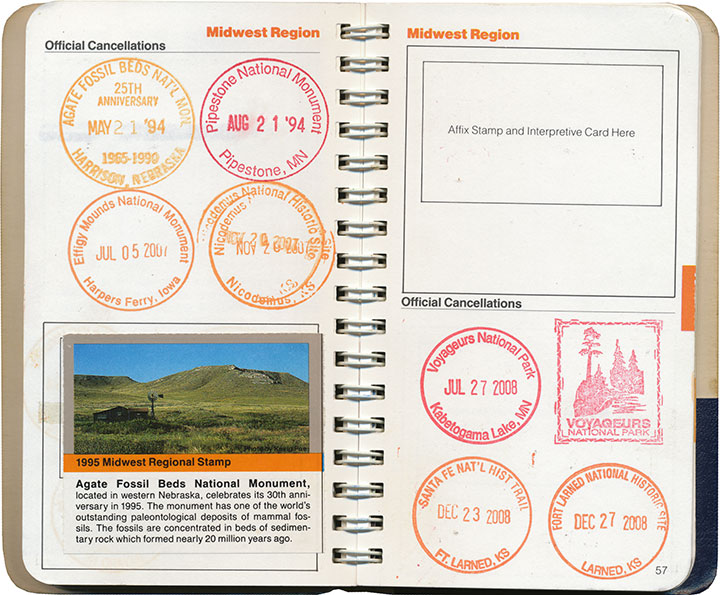
A stamp to collect at every NPS property in the country, and a tidy little book to hold them all? I was hooked.
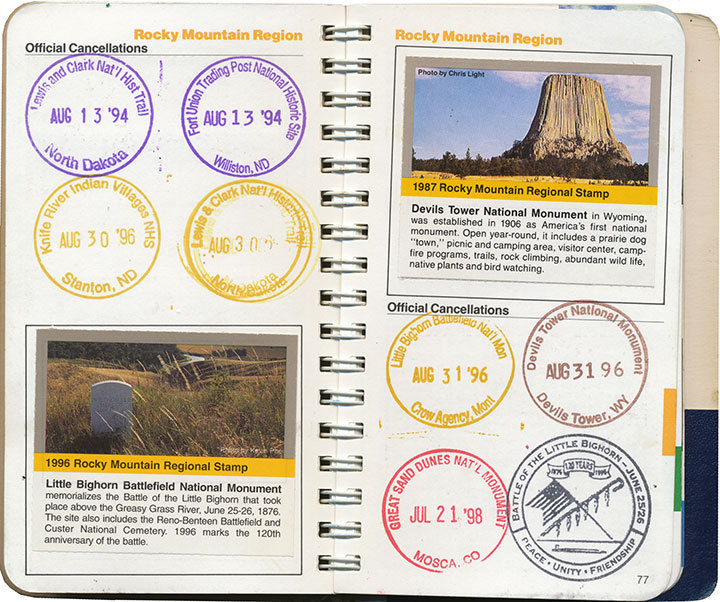
Dad and I found ways to sneak a national monument or two into every road trip and relocation—and even took impromptu vacations just to add a new park to the list. My favorite memory is when I was in high school, and Dad popped his head into my room:
“Have any plans this weekend?”
“Uh, no…”
“Wanna go to Montana?”
So we jumped in the car and drove 600 miles just to flip General Custer the bird at Little Bighorn (I had just read Bury My Heart at Wounded Knee, so he wasn’t exactly stirring me to patriotism). I mean, if you’re going to do it, you might as well go all out, after all. And we had the stamp to commemorate the moment.
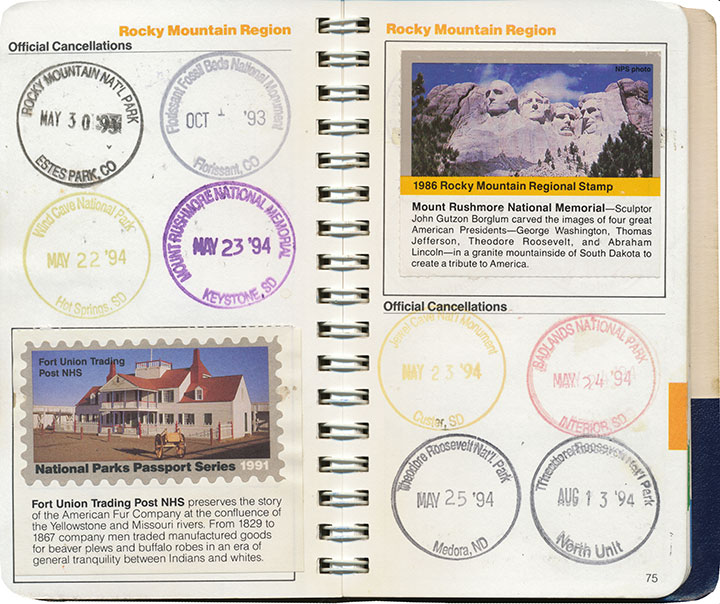
The Passport program also includes collectible paper stamps, which can be purchased from afar (as opposed to the ink cancellations, which are free but can only be obtained in person). I’m pretty lukewarm about these, though; by the time I jumped on the bandwagon they had already phased out the super-cool two-piece design pictured in the lower left corner above, in favor of the cheaper, lower-quality one-piece stamp in the upper right. Since those have been revamped yet again into a pressure-adhesive sticker—and who knows what heinously non-archival chemicals might be in the glue—I’m even less of a completist about them now.
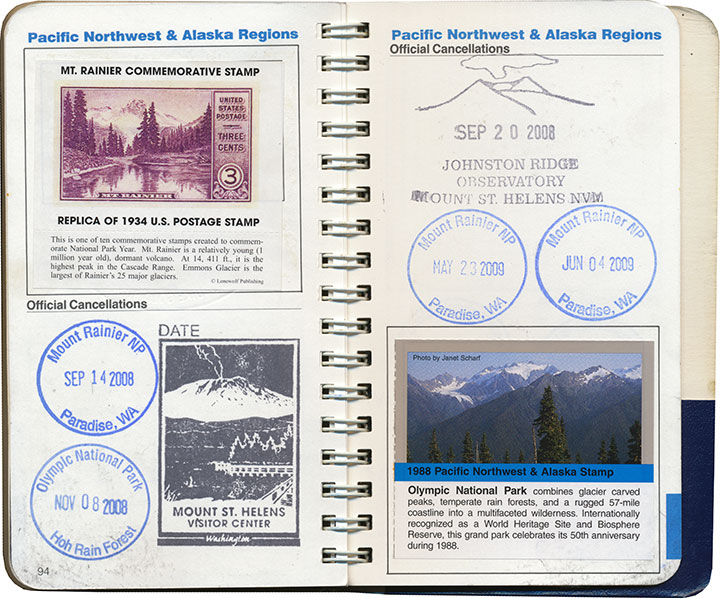
Anyway, I’ve burned through most of the regional sections in my Passport,
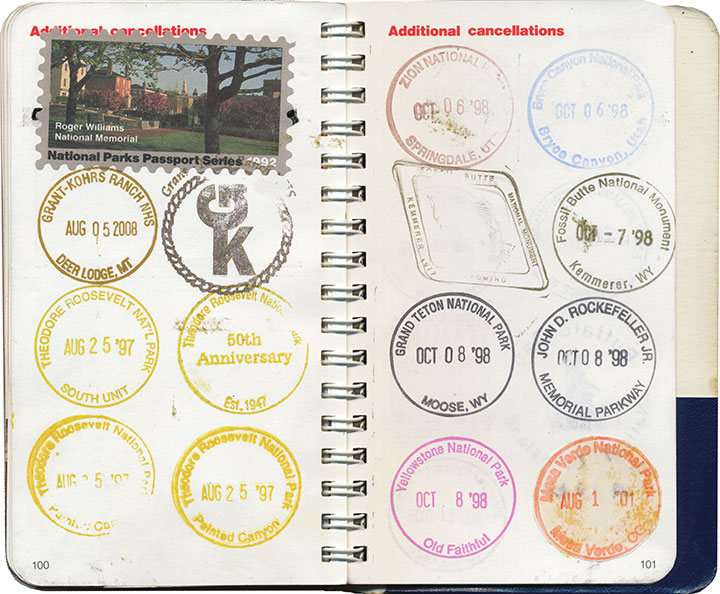
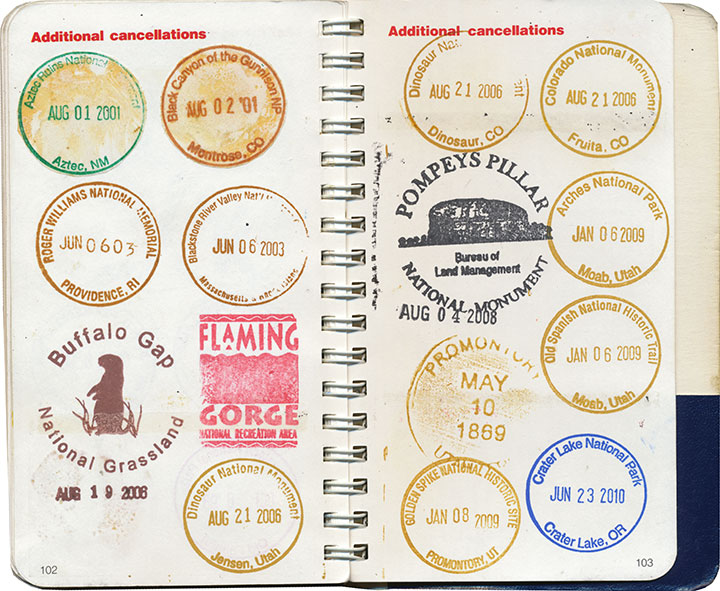
and every inch of overflow space.
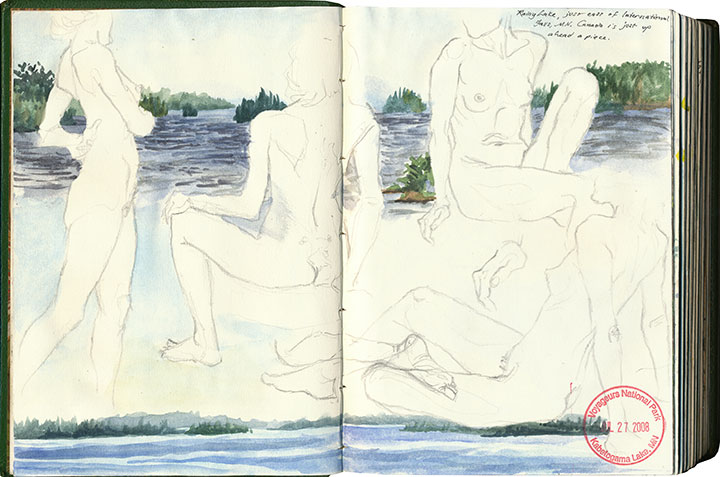
So I’ve branched out a bit.
What I didn’t know as a kid was that my Passport helped me develop my interest in nearly everything I love most: traveling, design, archiving, printmaking, history, typography, bookmaking, and so on.
At some point along the way, I realized that what I really mattered to me (beyond the travel itself) was the act of adding to an ongoing work—and then looking back to see what I had accomplished. That what I had been doing all along, by compiling this little individual history, is creating some form of artist book. And that my frustrations over an imperfect format were really a desire to create my own.
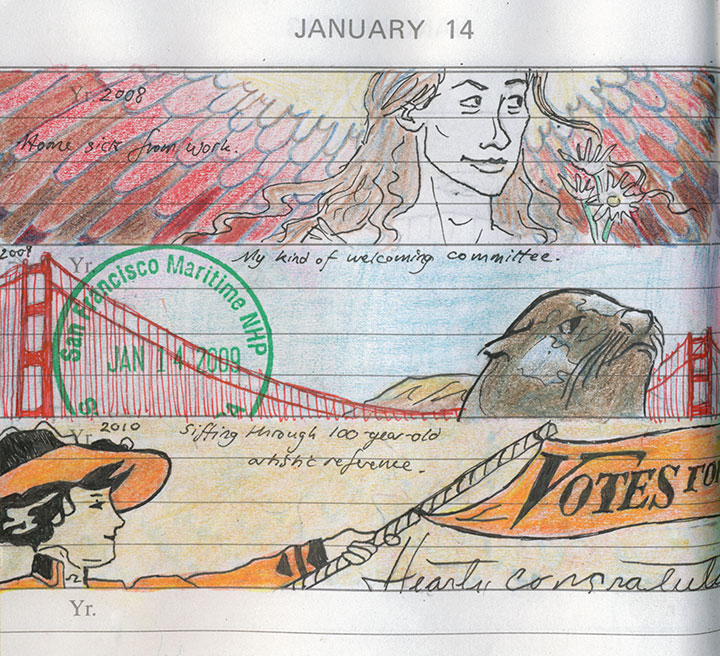
A page from my daily book—more on that here.
So now all of my sketchbooks are Passports, each custom-tailored—
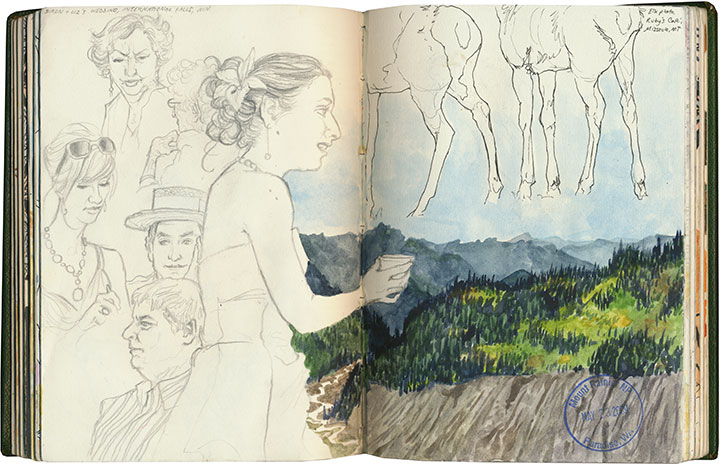
each infinitely flexible, ready for whatever adventures wait to be documented.
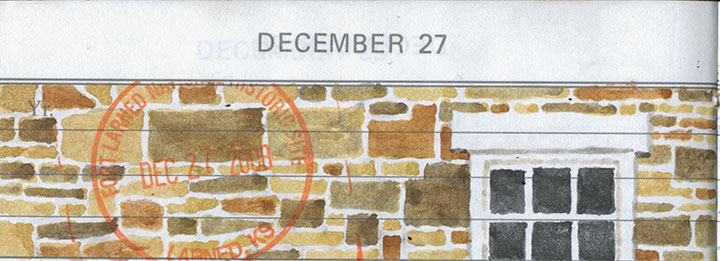
Here it is, nearly twenty years later, and I’m as eager as ever. Moreover, it’s my goal to collect every last cancellation within the entire National Park System before I stamp the big passport book in the sky. I’m about a quarter of the way there.
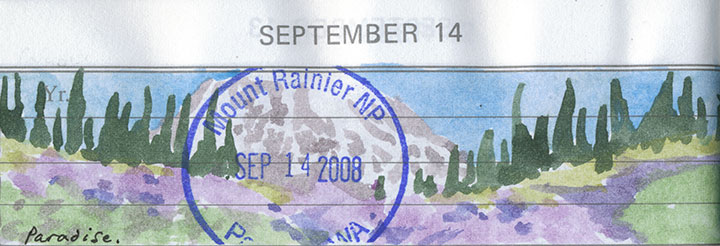
And I’ll probably have to build a library for all the sketchbooks I’ll fill between now and then.
Save

![Chandler O'Leary [logo]](https://chandleroleary.com/wp-content/themes/chandleroleary/images/logo.png)










































































